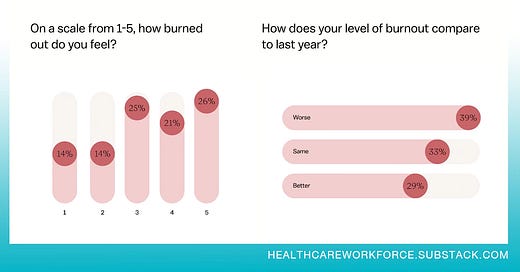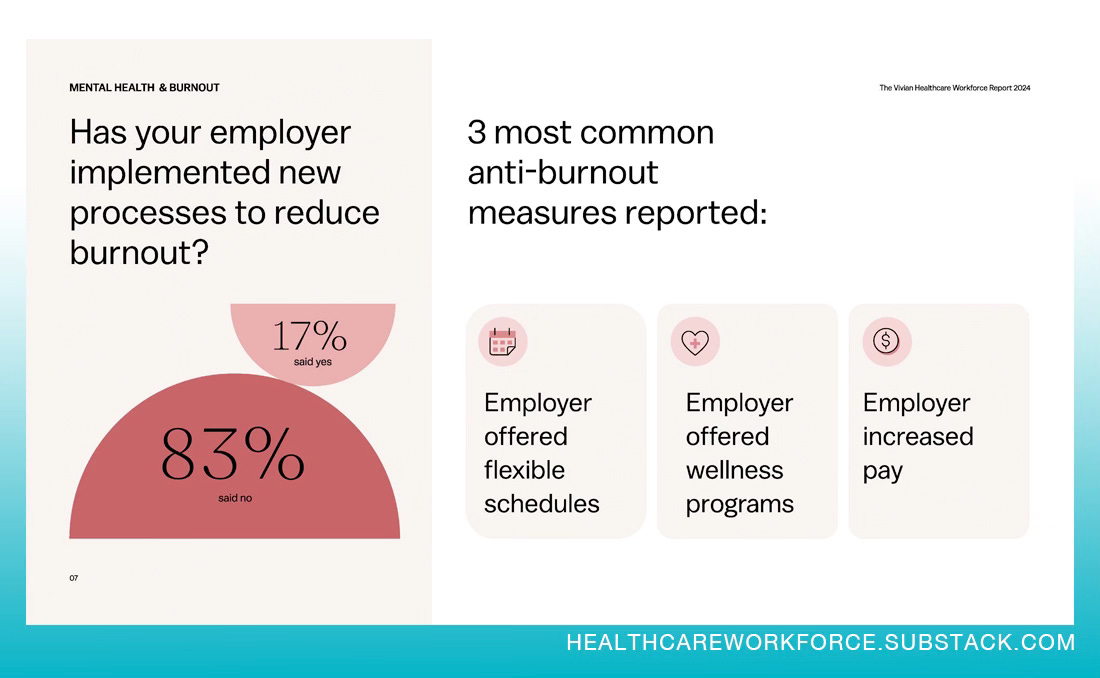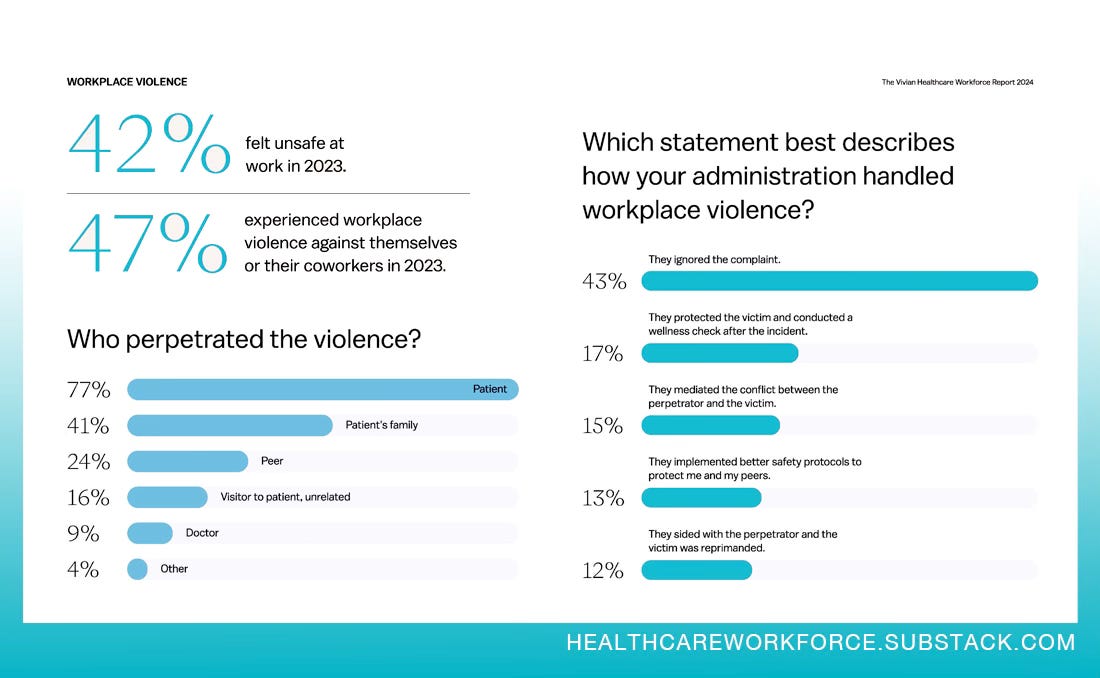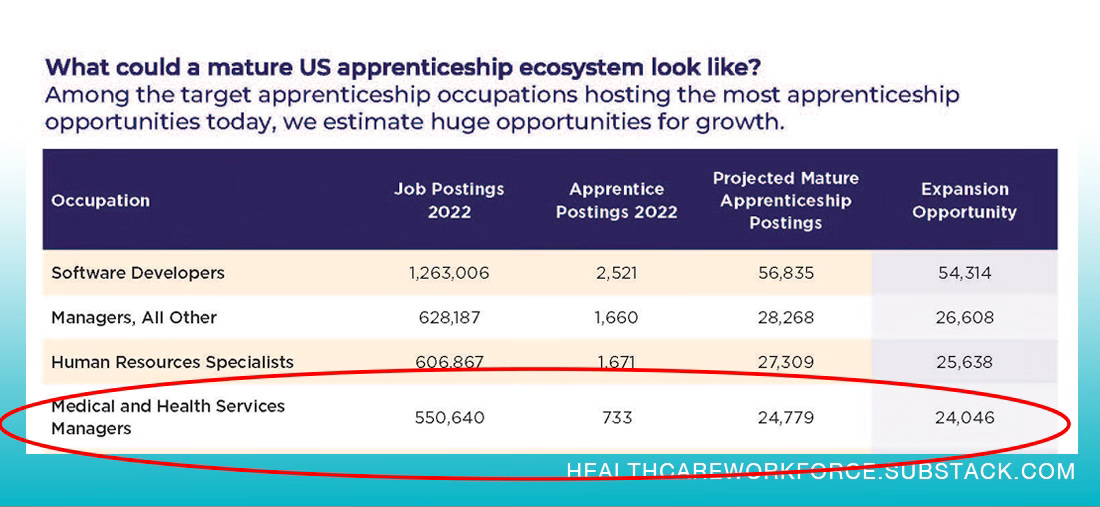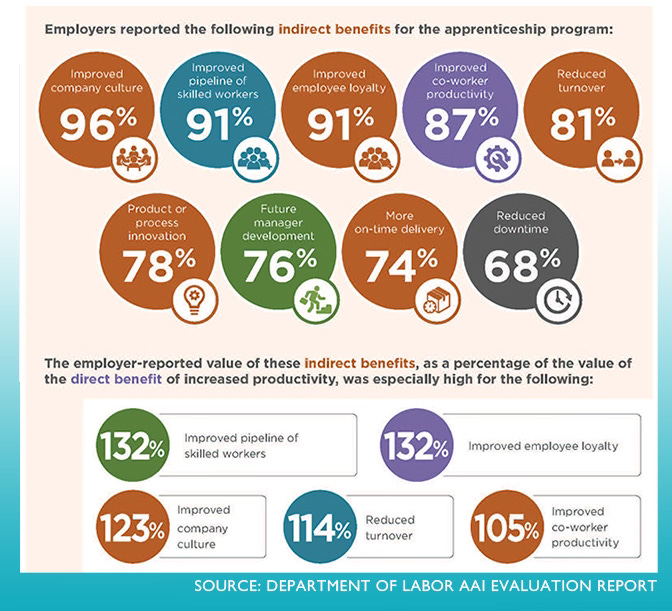Research paints a bleak picture of workers' outlook, a bright future for apprenticeships
Survey of clinicians shows burnout is getting worse and a majority support mandated staffing ratios
Several research reports published in recent weeks offer insights into how healthcare workers feel about their jobs, where employers are missing opportunities to bolster retention, how state laws on staff-to-patient ratios are viewed by clinicians, and how apprenticeships are well-poised to make a huge impact in workforce shortages in healthcare and many other industries.
Vivian Health survey of clinicians indicates employers have a lot of room to improve
For its fourth annual healthcare workforce survey, jobs marketplace Vivian Health surveyed 864 U.S. clinicians from all 50 states during December 2023 and January 2024, asking them about burnout, workplace violence, benefits, staffing ratios and much more.
When asked whether they agreed with the statement “I believe that my state should have laws governing staff-to-patient ratios," 81% of clinicians agreed, with 70% answering "strongly agree." Just 6% disagreed.
This doesn’t seem super surprising to me, especially since most of the healthcare worker strikes occurring in the past two years have listed unreasonable patient-staff ratios as one of the primary complaints leading to the walkouts.
About 16 states regulate the maximum number of patients that can be assigned to a nurse in residential care facilities and/or hospitals; as detailed in the Aug. 4, 2023, edition of this newsletter, New York and Pennsylvania are among several that have recently passed such laws and more are considering it. This Forbes article explains why the push is happening.
What is perhaps surprising — or maybe disappointing is a better word for it — is that almost none of the survey respondents said their patient loads had improved in 2023. Nearly 40% said their patient load increased and 47% said it had stayed the same.
Patient-staff ratio laws are “largely supported by nurses and unions, who say that short-staffing leads to burnout and violence, and threatens patient safety,” explains Becker’s Hospital Review. “They are widely rejected by hospitals and health systems, whose executives say nurse-to-patient staffing ratios will be nearly impossible to meet, possibly leading to bed reductions.”
Another hot topic during healthcare strikes and union negotiations has been workplace violence, and Vivian’s survey shows that while it’s declining since the height of the pandemic, a whopping 47% of respondents said they had experienced violence against themselves or a coworker in 2023.
One interesting tidbit from the survey that employers might take note of: Healthcare workers are increasingly adding a side hustle to cover their rising cost of living.
A little over a third of respondents said they have a second job to fill in income gaps, and about half of those are within the healthcare industry, Vivian’s report said. “This presents an opportunity to satisfy this income demand by providing alternative, flexible work options,” it said.
The section about caregiving demands did not paint a lovely picture of employers, who — given how all of them say they’re short-staffed and focusing on reducing turnover — seem to be largely avoiding the caregiving needs of their clinical staff.
Parents and caregivers made up just over half the survey respondents, and a full 50% of them said their employer was not doing anything to help staff members with the caregiving demands of their family.
Of those who said their employer offered some type of assistance or program for employees who were also parents or caregivers:
25% of respondents said employers were offering more flexible hours to accommodate their need to be a caregiver at home.
10% said unpaid parental leave
9% said paid parental leave
3% said stipend for caregiving
2% said at-home caregiving services
1% said on-site childcare
Why this matters: more than half of the respondents said they are unable to get adequate child care or caregiving services, and 45% of respondents said they had to take time off work because of it. And more than half of those who took time off work to meet family caregiving demands did not return to their previous employer.
You can view the full research results at https://discover.vivian.com/healthcare-workforce-report.
Workforce researchers call for massive expansion of apprenticeships
A couple of new reports from Burning Glass Institute dive deep into what it calls mass underemployment of Americans, including Americans holding a four-year college degree.
Their data-rich “Untapped Potential” report shows that 128 million Americans are underemployed and treading water in low-opportunity roles — and it’s a long-term problem that isn’t going away. In a related report, BGI notes that overall 45% of college graduates are underemployed a decade after graduation, but those rates are lower for people who hold degrees involving math, computer science, or health programs.
The institute argues that the U.S. economy needs a better way to upskill workers, both with and without a college degree, and it isn’t just a talent imperative, it’s also an equity imperative.
The answer, BGI says, lies in embracing and dramatically expanding apprenticeship programs across many industries, including healthcare. This newsletter has delved into burgeoning healthcare apprenticeships with a case study on a 3-year-old program in Illinois (Nov. 16, 2023 edition) and an analysis of employers’ opinions of apprenticeships funded by federal grants, five years later (Nov. 28, 2023 edition).
The data from Burning Glass is kind of mind-boggling; researchers crunched a lot of numbers and project what a “mature U.S. apprenticeship ecosystem” would look like; healthcare employers have “huge opportunities for growth” in this arena, the report showed.
From the analysis of employers who used federal grants to run trial apprenticeship programs, detailed in the Nov. 28, 2023 HWR:
Shout-out to Healthcare Workforce Report sponsors
The Healthcare Workforce Report newsletter is generously supported by MedCerts.
For information on supporting HWR, email HealthcareWorkforce@substack.com.


